On June 13, the 2025 SMM (2nd) Global Secondary Metals Industry Summit Forum, hosted by SMM, successfully concluded at the Hyatt Regency Bangkok Sukhumvit!
The event brought together industry representatives and experts from multiple regions and countries, including India, the Middle East, Southeast Asia, Europe, and Africa. They engaged in brainstorming sessions on hot topics such as changes in the global supply-demand pattern of the secondary metals industry, global secondary metals industry development trends and challenges from a Middle Eastern perspective, in-depth analysis of the strengths and challenges in India, the Middle East, Europe, and Southeast Asia, the battery resource market in Southeast Asia: supply chain dynamics, the current situation and future challenges of the secondary lead industry in Southeast Asia, the development of the global secondary metals supply-demand pattern from an Indian perspective, and secondary copper and aluminum scrap yards: innovative recycling and sorting technologies to support the industry's green and carbon-reduction journey.
Cui Suoye, Director of SMM Nonferrous Consulting, shared insights on the topic of "changes in the global supply-demand pattern of the secondary metals industry." Regarding secondary aluminum, he stated that over the past decade, the proportion of secondary aluminum production in developed countries such as North America, South America, Europe, and Japan has been significantly higher than that in developing countries. As developing countries benchmark against developed countries, their future potential for aluminum scrap demand will be even more substantial. From 2022 to 2042, SMM expects the compound annual growth rate (CAGR) of extruded aluminum scrap to reach approximately 5%. By 2042, extruded aluminum scrap is projected to account for about 33% of total aluminum scrap. Regarding secondary copper, he mentioned that SMM forecasts the global copper scrap market size to grow at a CAGR of 4.2% from 2024 to 2030.
Wu Xiaoyun, Chairman of the Beijing-Tianjin-Hebei Lead-Acid Battery Industry Alliance, shared his views on "the current situation and transformation path of the secondary lead industry in Southeast Asia." He emphasized that the construction of a recycling system is closely linked to the healthy development of the secondary lead industry. The healthy development of the secondary lead industry relies on mutual support across the industry chain, rational government planning and policy support, as well as industry self-discipline and self-regulation.
Xie Xiaoying, Director of Sustainable Development Business at Shanghai Lvran Environmental Information Technology Co., Ltd., introduced the topic of "the development path of the global secondary metals industry driven by the ESG context." She pointed out that despite the numerous challenges faced by the secondary metals industry, investing in advanced technologies can effectively handle various complex materials while reducing processing costs. To ensure supply chain reliability, manufacturers may adopt vertical integration strategies in key markets, which, however, will increase operational costs. In addition, the price of scrap metal is usually referenced against the market price of the relevant primary metal. Carbon pricing and the Carbon Border Adjustment Mechanism (CBAM) can help enhance the economic benefits of underutilized scrap metal resources.
》Click to view the live photo stream link
》Click to view the special coverage of this conference
Opening Remarks
Speakers:
Fan Xin, Chairman of SMM
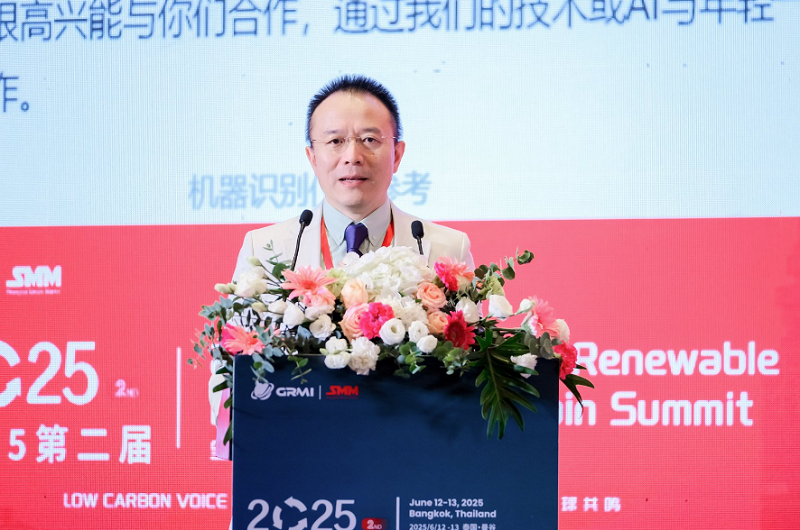
Li Shilong, President of China Renewable Resources Industry Technology Innovation Alliance
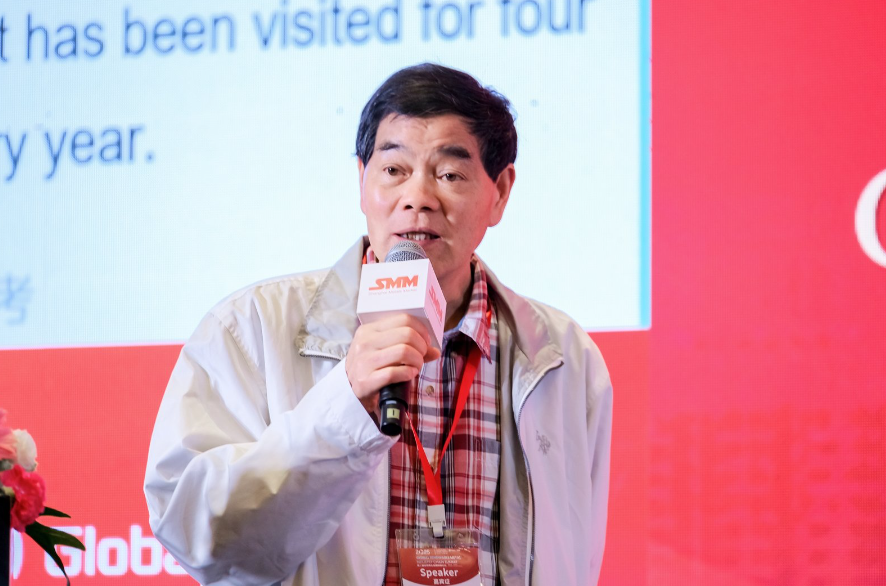
Award Ceremony



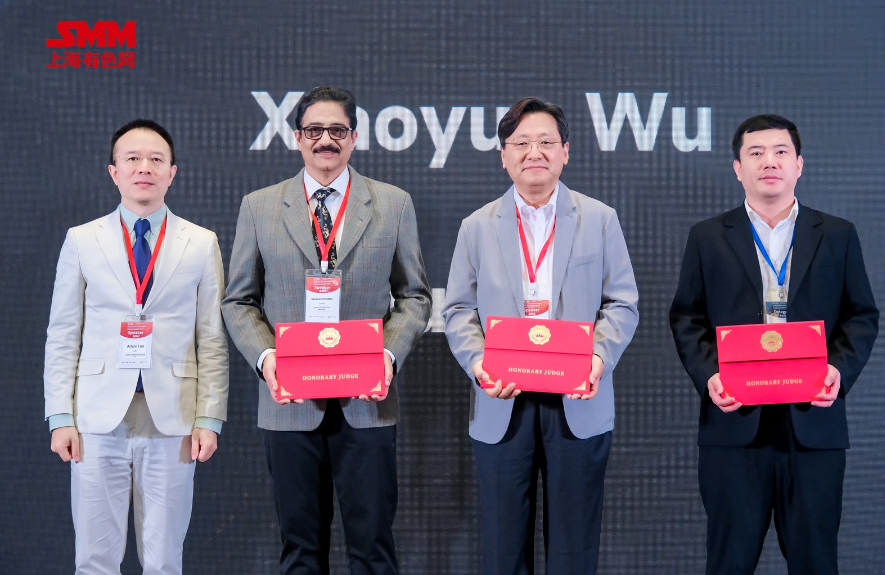
Main Forum
Guest Speeches
Speech Topic: Green Transformation and Sustainable Development Prospects of Thailand's Recycled Metal Industry
Guest Speaker: Secretary General of ASEAN Institution of Recycling (AIR)
Dr. Somthai Wongcharoen
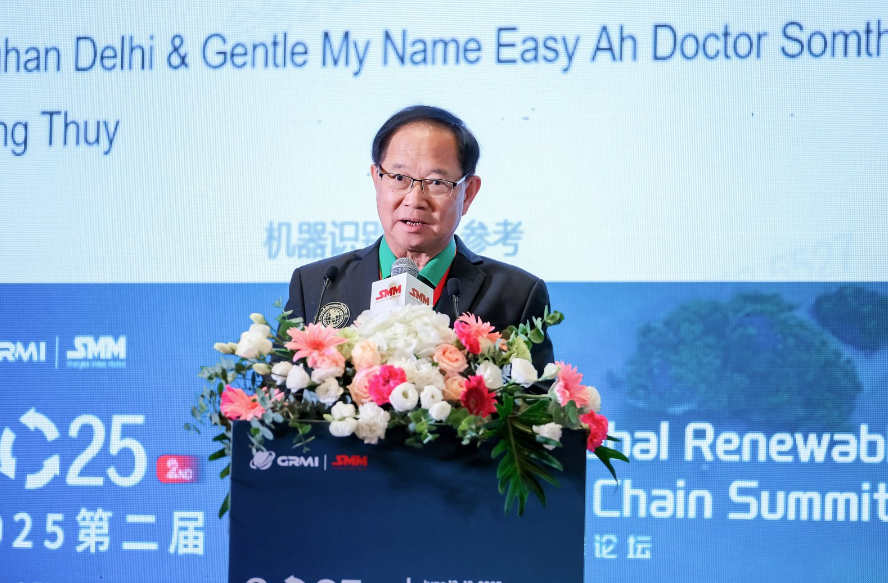
The Thailand Recyclers Trade Association is composed of major recycling enterprises in Thailand, including smelting companies, wholesale collection enterprises, and import-export companies.
In terms of metal scrap, association members handle high-value metals such as copper, primary aluminum, lead, as well as lead-acid batteries and EV batteries. Additionally, they also recycle electronic waste, such as PCB boards, extracting precious metals like gold, palladium, and copper.
Enterprises within the association recognize the importance of the recycled metal industry to Thailand's future development, making metal recycling models very popular domestically.
By relying on renewable resources, Thailand is expected to effectively address the challenges posed by climate change.
》Green Transformation and Sustainable Development Prospects of Thailand's Recycled Metal Industry
Speech Topic: Strengthening International Exchanges to Promote Green Development of China's Non-Ferrous Recycled Metals
Guest Speaker: Li Shilong, President of China Renewable Resources Industry Technology Innovation Alliance
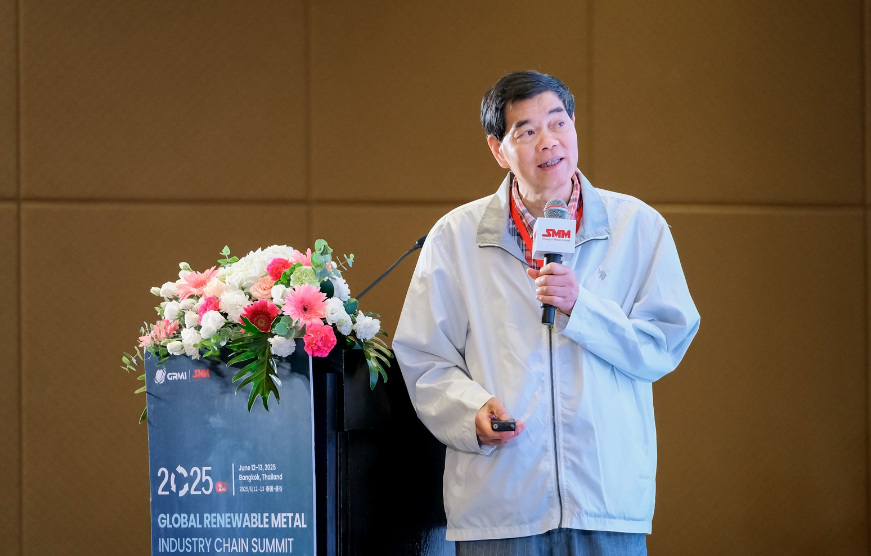
Interview with Top Entrepreneurs in the Recycled Metal Industry
Moderator:
Li Shilong, President of China Renewable Resources Industry Technology Innovation Alliance
Guests:
Zhu Zhanhong, HR and Administrative Director of Daizheng Daji Metal (Thailand) Co., Ltd.
Zhang Junbing, Global Procurement Director of Hailiang Group Co., Ltd.
Qin Xinghong, General Manager of P.C. WOOD PRODUCTS CO., LTD.
Liu Qingcheng, Deputy General Manager and Director of Thai-Chinese Non-Ferrous Metals International Co., Ltd.
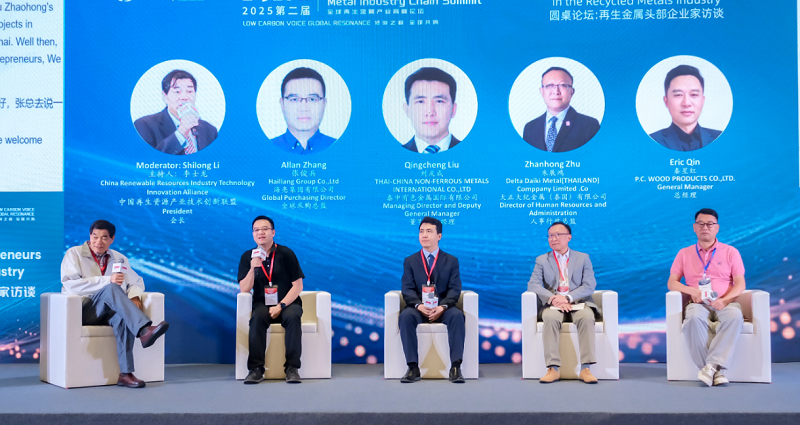
Speech Topic: The Path to Global Development of the Recycled Metal Industry Driven by the ESG Context
Guest Speaker: Xie Xiaoying, Director of Sustainability Business at Shanghai Lvran Environmental Information Technology Co., Ltd.
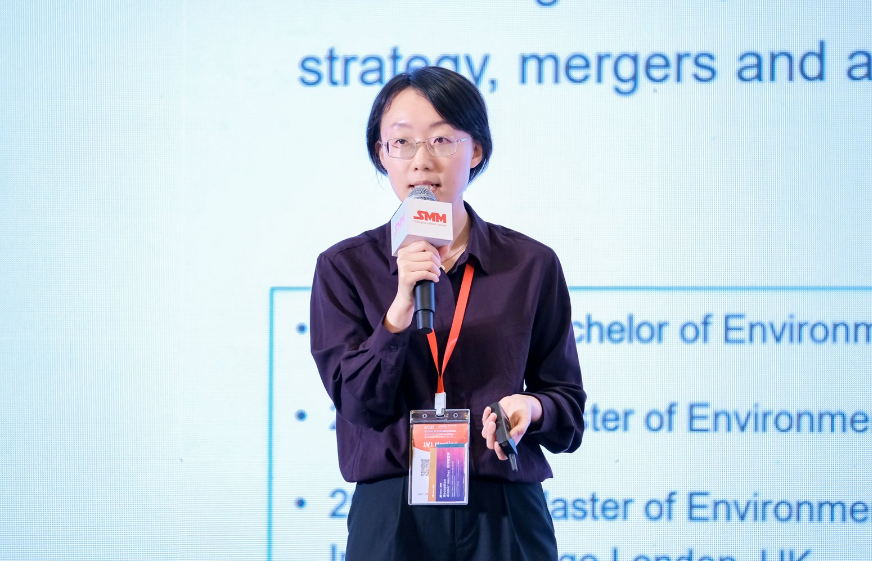
Key ESG Risks
Environment: Heavy metal pollution, water scarcity, climate impacts, waste.
Social: Land/resettlement conflicts, labor rights, community health and safety.
Governance: Compliance gaps, ethics, weak grievance mechanisms.
ESG Accelerator
Highlights the factors driving ESG compliance and sustainability (investors, regulations, and supply chains).
Recycled Metals
Emphasizes the role of recycled metals as a core ESG solution.
Remaining Challenges
Obstacles still hinder the full implementation of ESG, such as gaps in metal recycling technology, supply stability issues, and the lack of pricing mechanisms to calculate ESG value.
The Path to Global Secondary Metals Industry Development Driven by the ESG Context
Speech Topic: Changes in the Global Supply-Demand Pattern of the Secondary Metals Industry
Guest Speaker: Cui Suoye, Director of SMM Nonferrous Consulting
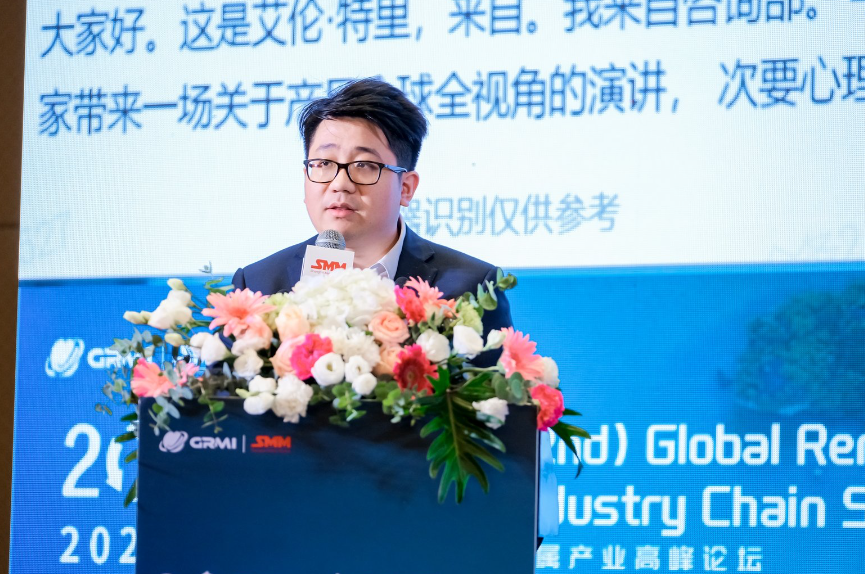
Cui Suoye, Director of SMM Nonferrous Consulting, shared insights on the topic of "Changes in the Global Supply-Demand Pattern of the Secondary Metals Industry." Regarding secondary aluminum, he stated that over the past decade, the proportion of secondary aluminum production in developed countries such as North America, South America, Europe, and Japan has been significantly higher than that in developing countries. For developing countries, benchmarking against developed countries, the future potential for aluminum scrap demand will be even more substantial. From 2022 to 2042, SMM expects the compound annual growth rate (CAGR) of extruded aluminum scrap to reach approximately 5%. By 2042, extruded aluminum scrap is expected to account for about 33% of total aluminum scrap. Regarding secondary copper, he mentioned that SMM forecasts the global copper scrap market size to grow at a CAGR of 4.2% from 2024 to 2030.
Secondary Aluminum
Over the past decade, the proportion of secondary aluminum production in developed countries such as North America, South America, Europe, and Japan has been significantly higher than that in developing countries. Similarly, for developing countries, benchmarking against developed countries, the future potential for aluminum scrap demand will be even more substantial.
According to SMM, China, the US, Europe, and India are the major aluminum scrap-producing regions, accounting for approximately 80% of the total. Benefiting from global carbon reduction policies, recycling systems in various countries are continuously improving. In the future, aluminum scrap production will continue to grow.
According to SMM data, in 2022, the production of rolled aluminum scrap exceeded that of extruded and cast aluminum scrap, becoming the highest among the three types of aluminum scrap. However, it is expected that extruded aluminum scrap will grow at the fastest rate in the future. From 2022 to 2042, SMM expects the CAGR of extruded aluminum scrap to reach approximately 5%. By 2042, extruded aluminum scrap is expected to account for about 33% of total aluminum scrap.
Speech Topic: Global Secondary Metals Industry Development Trends and Challenges from a Middle Eastern Perspective
Guest Speaker: Sanjeev Phadke, Financial Controller and Executive Committee Member of the Middle East Recycling Bureau

Exploring the Global Secondary Metals Market: An In-depth Analysis of Strengths and Challenges in India, the Middle East, Europe, and Southeast Asia
Moderator:
Fan Xin, Chairman of SMM
Guests:
Metalcom Ltd. General Manager Mr. Kittipot Thanalertlap
CEO of Dr. Recycling, Tan Tian
Director of DIMEXA HOLDINGS PTE. LTD., WENCESLAO MANZ
Financial Controller and Executive Committee Member of the Middle East Recycling Bureau, Sanjeev Phadke
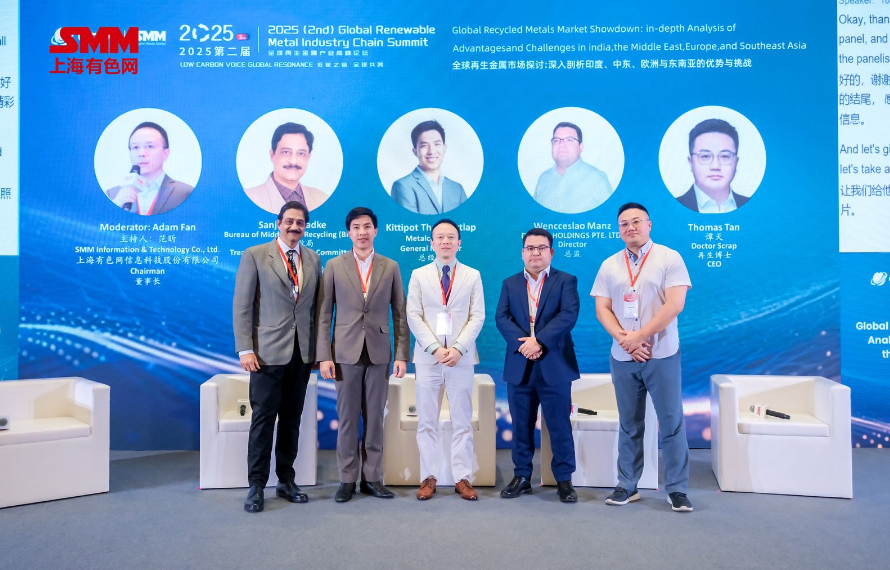
June 13
Battery Recycling Forum
Southeast Asian Battery Resource Market: Supply Chain Dynamics
Moderator:
Cui Suoye, Director of SMM Nonferrous Consulting
Guests:
Sujin Kim, Global Business Development Director of BatX Energies
Wu Xiaoyun, Chairman of the Beijing-Tianjin-Hebei Lead-Acid Battery Industry Alliance
Zhao Bin, President of the Thai-Chinese Rayong Industrial Zone
Chen Wenkai, Chairman of the Malaysia Nonferrous Metals Association (MNMA)
Shen Juan, Purchasing Director of Jingjiu Group
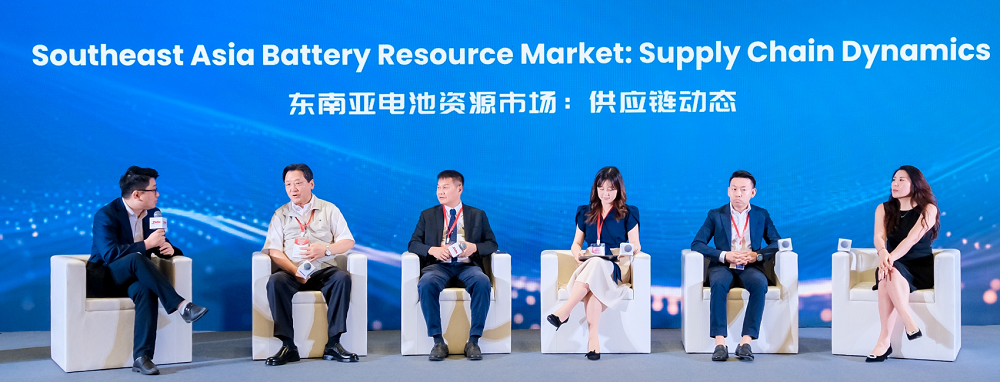
Speech Topic: Current Status and Future Challenges of the Southeast Asian Secondary Lead Industry
Guest Speaker: Wu Xiaoyun, Chairman of the Beijing-Tianjin-Hebei Lead-Acid Battery Industry Alliance
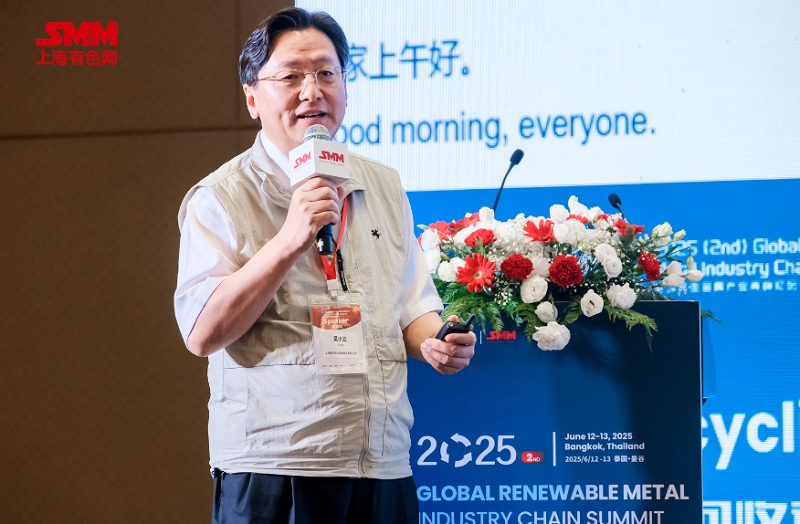
I. Overview of the Current Status of the Southeast Asian Secondary Lead Industry
I. Current Status of the Southeast Asian Secondary Lead Industry
1. Severe Imbalance in Supply and Demand
Demand Side: Demand for lead-acid batteries: starting batteries (with an ownership of over 40 million units) and motorcycle power batteries (with an ownership of 250 million units), as well as demand for backup power supplies for 5G base station construction (ESS batteries).
Supply Side: The local secondary lead production capacity is severely insufficient, with an annual shortfall of 150,000 mt in Vietnam (self-sufficiency rate of only 42%) and 80,000 mt in Indonesia (self-sufficiency rate of 65%), relying on imported lead ingots to fill the gap.
Raw Material Bottleneck: Scrap lead-acid batteries are difficult to recycle across borders due to restrictions under the Basel Convention, resulting in an annual loss of approximately 600,000 mt of lead. The utilization rate of secondary lead production capacity is only 50%.
2. Environmental Protection and Technological Challenges
ESG compliance costs in Malaysia have increased by 30%, with small and medium-sized factories investing over $5 million annually in environmental protection. Thailand/Indonesia will ban the import of lead-containing plastic residues in 2025, exacerbating the shortage of raw materials. A high proportion of low-purity secondary lead (60% of inventory in Malaysia has a purity of <99.97%) makes it difficult to meet battery-grade standards.
3. Intensified Regional Competition
Chinese battery companies have deployed a production capacity of 1 million mt, driving up the local scrap battery acquisition premium to 120% of the Chinese market price.
Speech Topic: Improving the Battery Recycling System Driven by the Market Growth of EVs in Southeast Asia
Guest Speaker: Luo Tieying, President of Jinchi Industrial Park

Speech Topic: Exploring Africa: Opportunities for Sustainable Expansion and Raw Material Investment
Guest Speaker: Yousef Al Sharif, Director of the African Recycled Metals Association/Al Sharif Metal
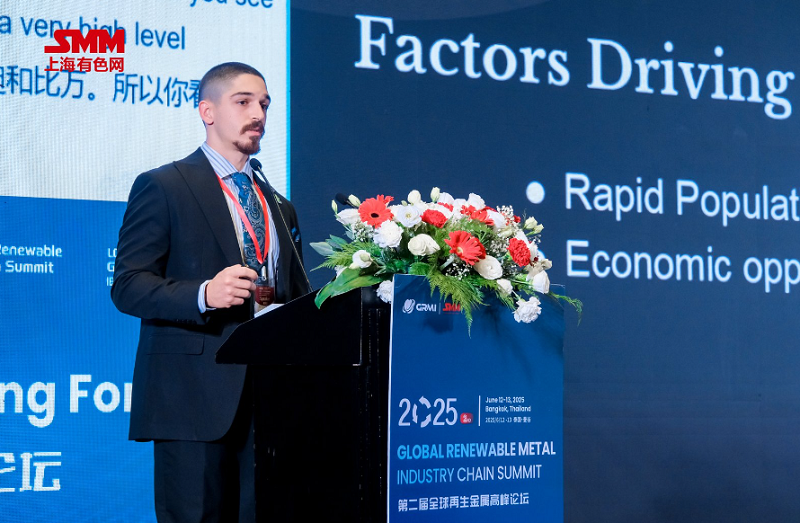
Secondary Copper and Aluminum Forum
Speech Topic: Global Impact of Changing Trade and Tariff Policies in the US
Guest Speaker: Adam Shaffer, VP of the Institute of Scrap Recycling Industries (ISRI)
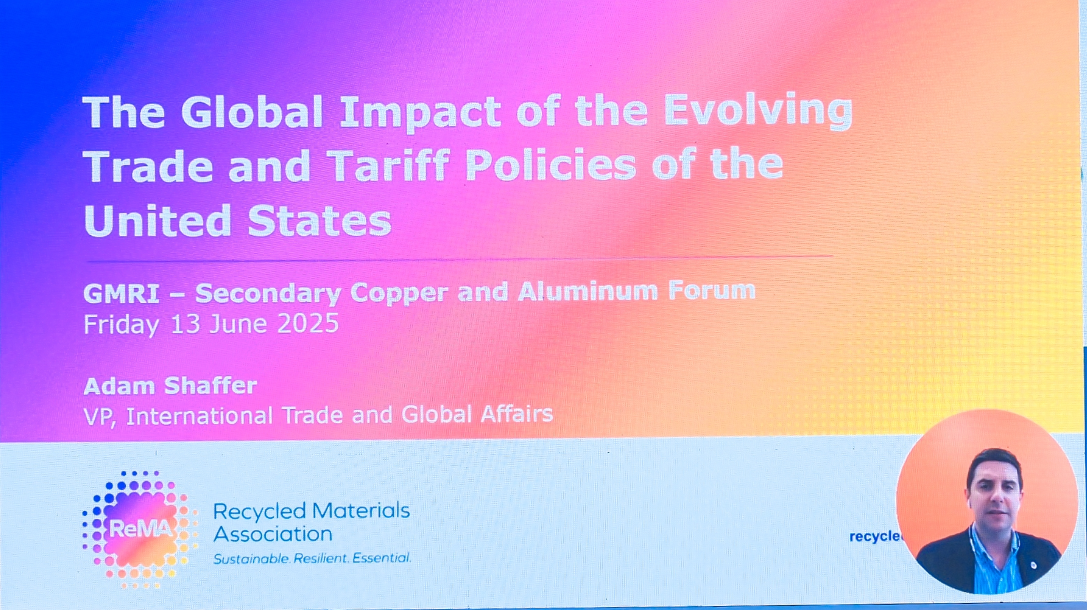
Speech Topic: SMM Serving the Global Secondary Copper and Aluminum Metal Market
Guest Speaker: Zhang Xiaoyao, Project Leader of SMM Recycling Conference

Speech Topic: Global Supply-Demand Pattern Development of Secondary Metals from an Indian Perspective
Guest Speaker: Amar Singh, Secretary General of the Material Recycling Association of India
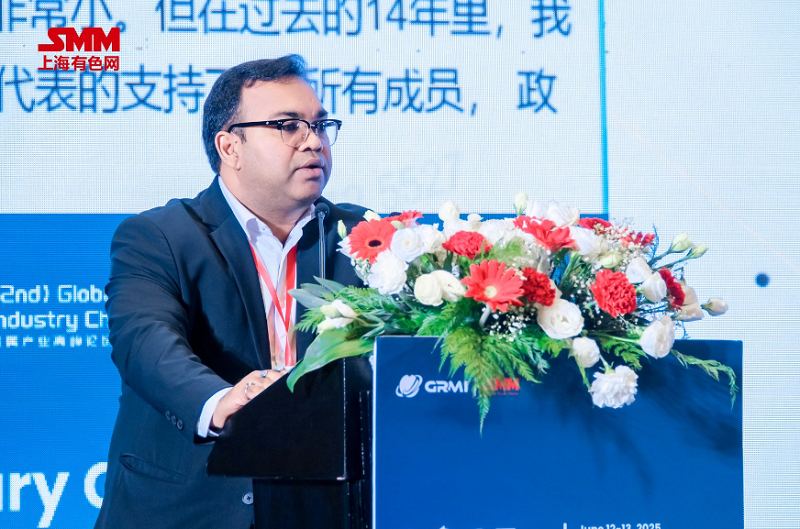
Speech Topic: Building a New Cambodia-China Metal Hub - Inviting You to Co-Construct an Overseas Demonstration Industrial Park for Recycling Nonferrous Metals Processing
Guest Speaker: Cao Zhuo, General Manager of International Business for the Americas Region of the Cambodia-China Metal Materials Industrial Park

Secondary Copper and Aluminum Yard: Innovative Recycling and Sorting Technologies Paving the Way for Green and Carbon-Reducing Industry
Moderator:
Zhou Bo, Executive Vice President of SMM
Guests:
Liang Jiali, Deputy General Manager of Foshan Lvtian Environmental Protection Machinery Equipment Co., Ltd.
Li Zhiqiang, General Manager of Henan Recycling Technology Co., Ltd.
Ye Hangyu, Director of the Foreign Trade Department of Hefei Anjinglong Electronics Co., Ltd.
Sun Bolin, Sales Director of Liaoning Pinuo Environmental Protection Technology Co., Ltd.
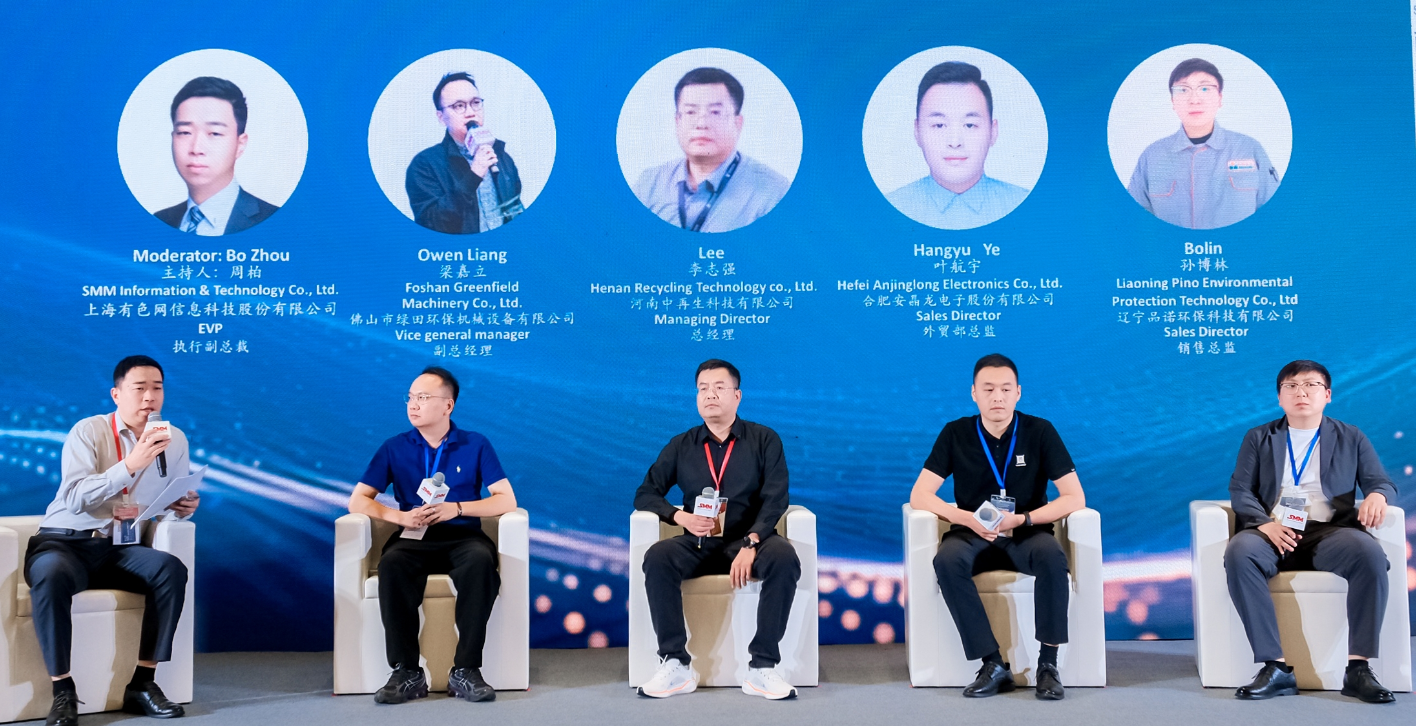
Recommendations for Copper, Aluminum - High-Quality Overseas Yards and Trustworthy Traders, and Batteries - High-Quality Equipment Enterprises

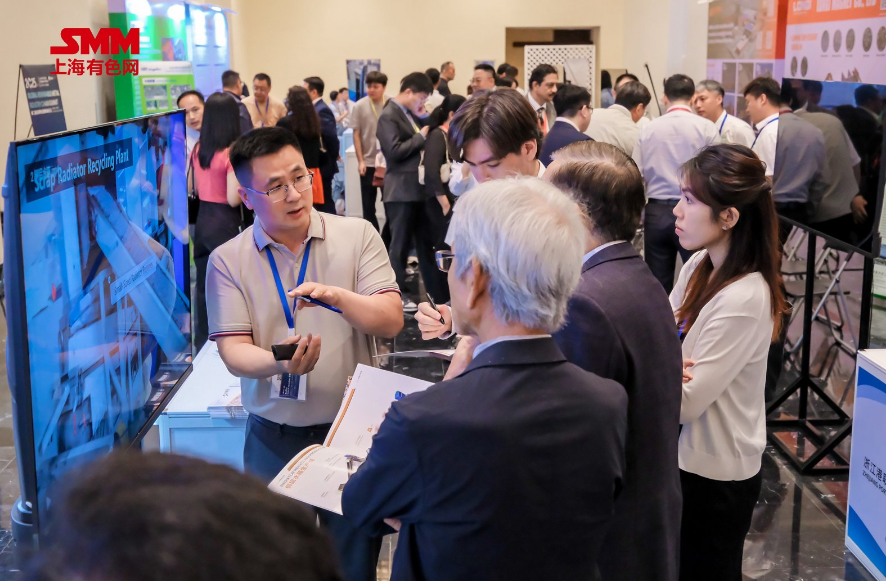


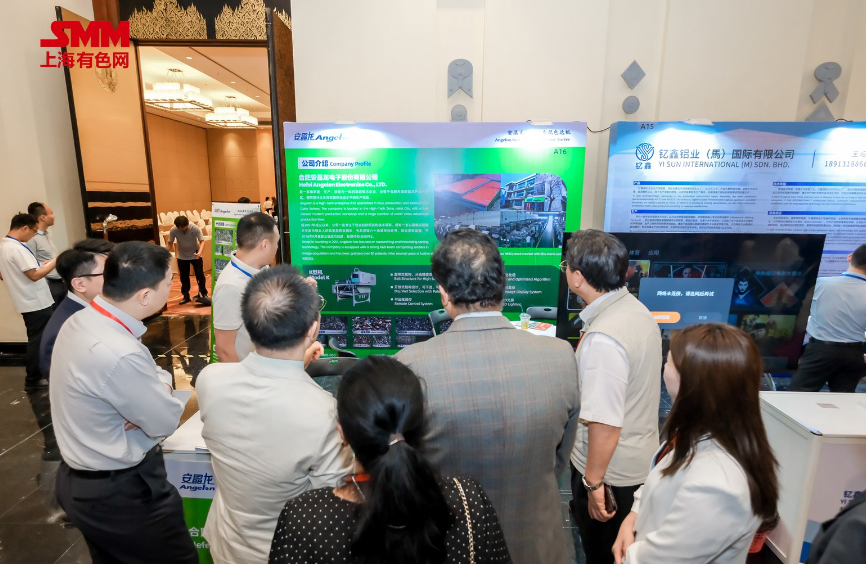
Sidelights from the Venue
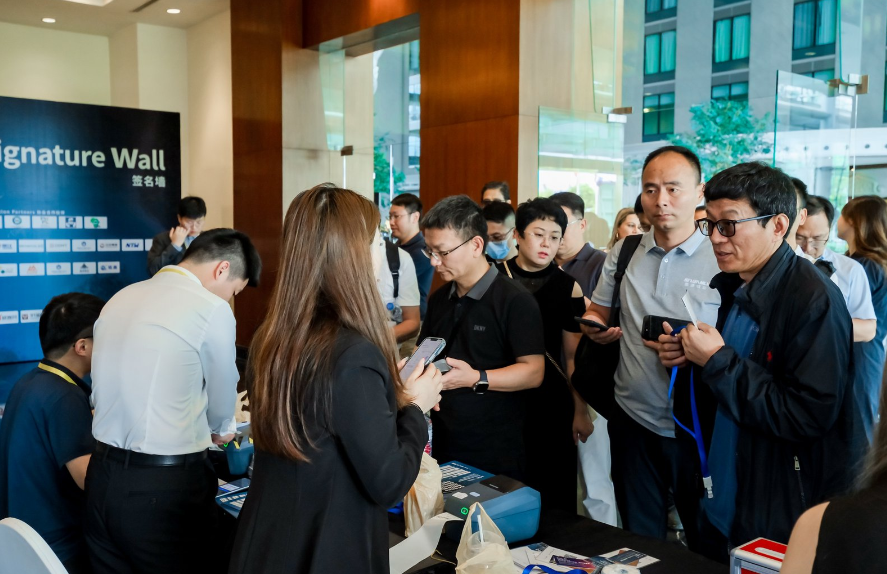
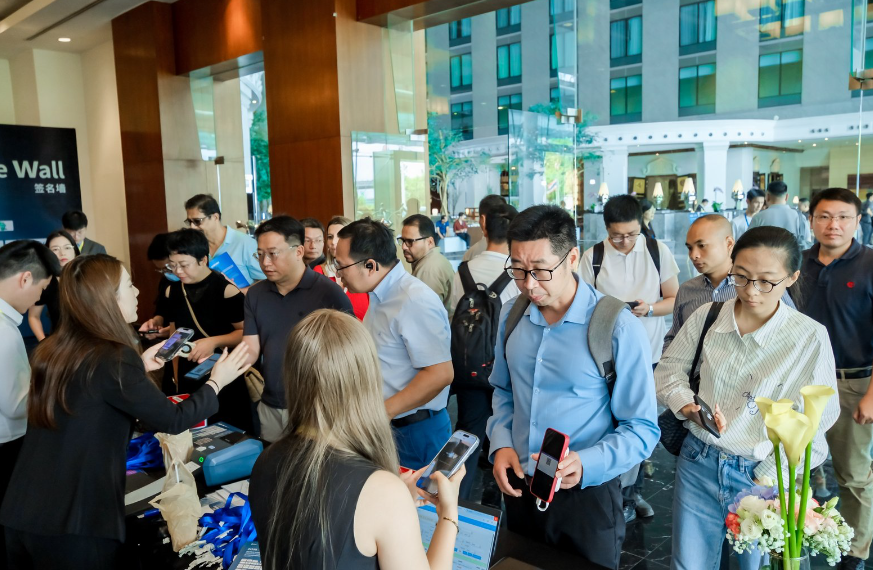
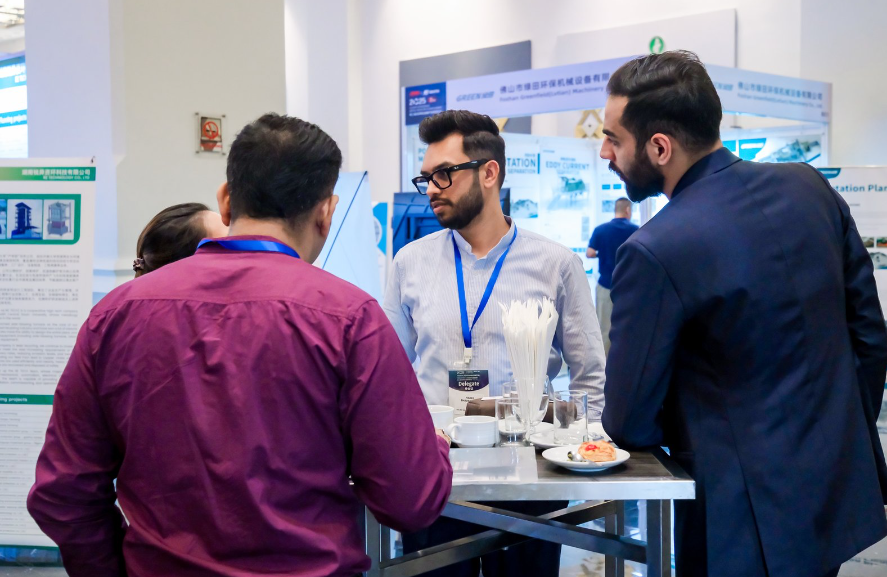
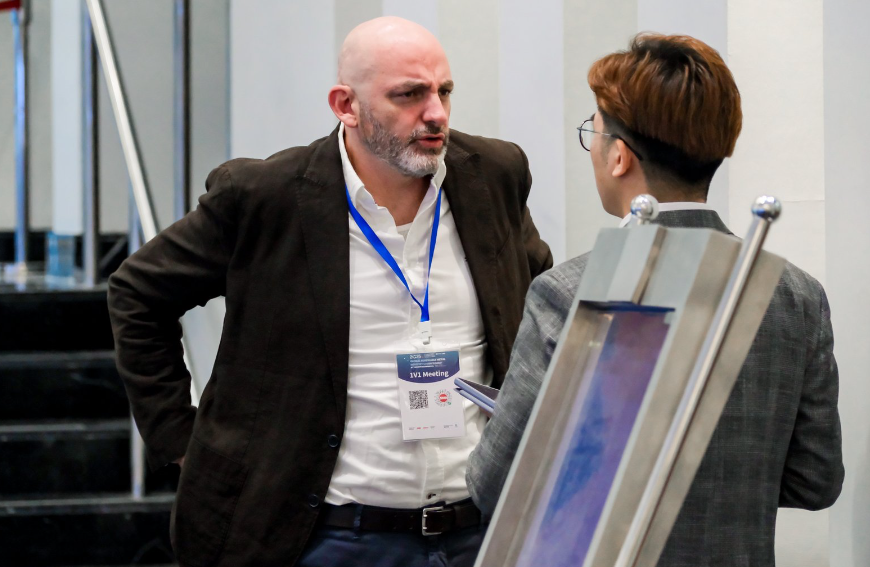
》Click to View More Sidelights
With this,the 2025 SMM (2nd) Global Secondary Metals Industry Summithas come to a successful conclusion. See you next year!
》Click to view the special report on the 2025 SMM (2nd) Global Recycled Metals Industry Summit Forum




